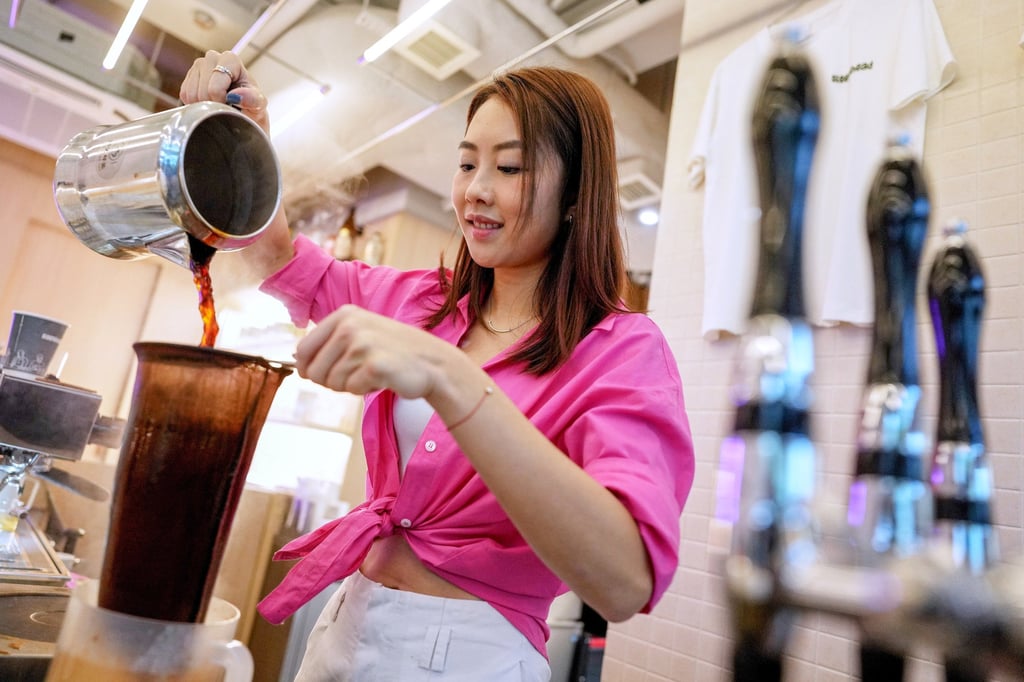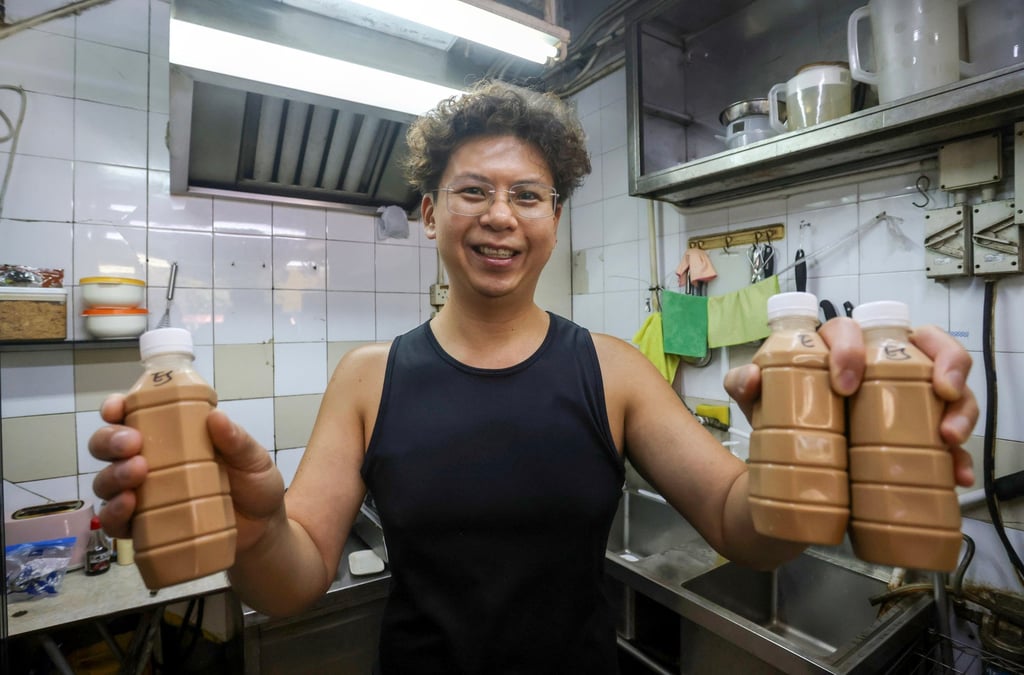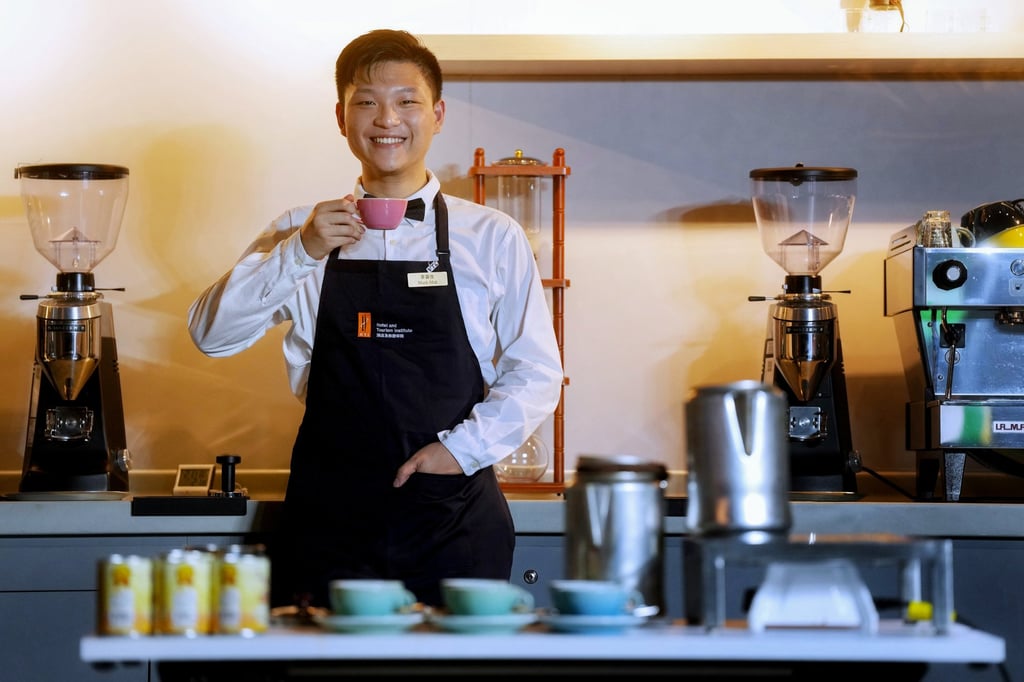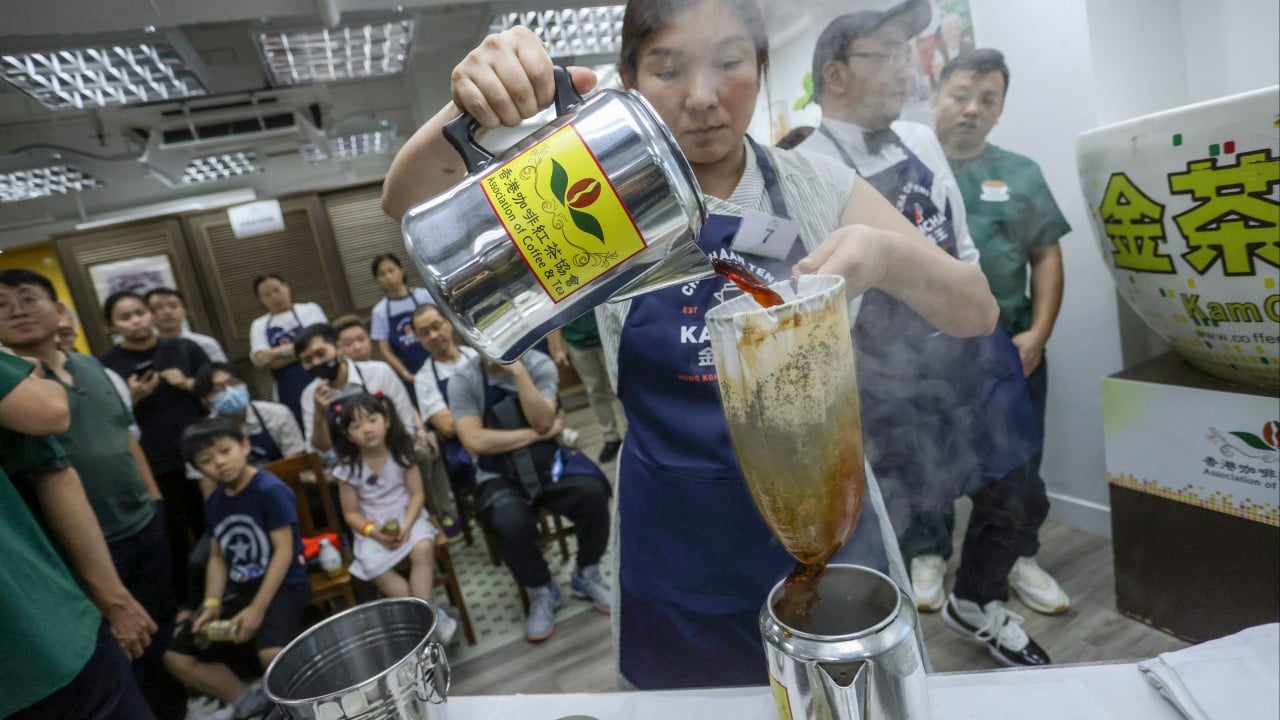Some Hongkongers have reinvented milk tea, taking the city’s traditional drink upmarket in a bid to preserve it and challenge a debate that coffee should be more expensive.
Compared with its Taiwanese counterpart, known for its chewy tapioca pearls, Hong Kong-style milk tea has a rich flavour. It is made creamy with the addition of evaporated milk, and packs a long-lasting tannin punch from the carefully steeped and “pulled” mix of tea leaves.
City residents, according to industry estimates, indulge in 2.5 million cups of milk tea per day on average, with some saying it is in their DNA. A cup costs roughly HK$20 (US$2.66).
Gina Li Wai-shuen decided to turn milk tea, mostly consumed at local cafes, or cha chaan teng, into ready-to-drink bottles when dine-in restrictions were imposed during the coronavirus pandemic in 2020.
Li, who previously worked at an investment bank, co-founded Sifu Good Tea, offering various products ranging from HK$30 to as much as HK$78.
“The quality [of milk tea] seems to vary in different restaurants. We developed simple standards of our own version of tea and then we made our own tea blend,” she said.
“People can easily grab it and then enjoy it in the office or at home.”
Her innovative products include red date black sugar milk tea with gin, rock sugar tangerine peel puer with vodka, and yuenyeung, a unique signature in which Li blended Ceylon tea leaves with cold brew coffee.
She also recently collaborated with another cafe to provide nitrogen-infused milk tea and milk tea affogato, a dessert originally made from espresso and ice cream.
“It’s a very old heritage, so we need some twists and a new energy,” Li said. “The concept is basically merging the cha chaan teng with the cafe culture where people enjoy their drinks in a comfortable environment.”

When Sifu Good Tea’s sales dropped 30 per cent compared with Covid times due to changing customer habits and an economic downturn, Li said she tried to expand her client base by offering workshops to promote the culture among locals and expatriates.
With the trend of taking handcrafted milk tea upmarket on the rise, Mt Waves is charging HK$38 each for its products on supermarket shelves.
But Elvin Lee Siu-kei, despite having crafted bottled Hong Kong-style milk tea for two decades, opted not to go for wholesaling due to extended payment terms and limited shelf space in supermarkets.
Customers flock to his 150 sq ft sandwich deli, Lung Fung Shop, in Yuen Long daily for bottled milk tea, priced between HK$25 and HK$38, and encompassing a variety of tea bases such as Taiwan oolong, osmanthus oolong, Earl Grey and more.
“The quality of milk tea in the market varies with a significant gap between good and bad, but the differences in taste between good and bad coffee are not as pronounced. So people tend to be more cautious when spending money on milk tea,” Lee said.

He stressed the artistry of crafting milk tea was as intricate as that for coffee, adding he blended six types of tea leaves for a single batch, with a palm-sized amount of tea leaves costing up to HK$500 alone.
“I believe I can provide customers with a greater variety of flavours so that once they find the right one, they will come back for more.”
Some young people, meanwhile, have chosen to enter the industry to learn to craft the drink, which was listed as part of the city’s intangible cultural heritage in 2017.
Mark Mak Ka-chun, 20, a graduate trainee of the Hotel and Tourism Institute of the Vocational Training Council and winner of the annual International and Greater Bay Area KamCha Competition 2023, said tea crafting was not an easy skill to learn.
“Before the Hong Kong regional finals, I spent about two to three months in the classroom, brewing over a hundred pots daily for eight hours, experimenting with various formulas. In reality, perfecting the tea base flavour proved to be the toughest,” Mak said.

Brewing milk tea entails different procedures to extract flavour with lots of techniques and experiences, he said, adding the challenge might lie in the repetitive nature of brewing the same tea base day after day, but the routine allowed him to creatively practise his skills.
“I aim to pass down my skills to my junior peers, enlightening them about our local Hong Kong culture and embedding it within their DNA,” Mak said.
Simon Wong Ka-wo, chairman of the Association of Coffee and Tea of Hong Kong which organised the competition since 2009, stressed the young generation and product evolution were both crucial for the heritage continuation.
“It shows that milk tea is not something old-fashioned and only limited to cha chaan tengs. People in overseas or mainland Chinese markets are also able to experience it, contributing to the preservation and dissemination of Hong Kong-style milk tea culture in a big way,” Wong said.


